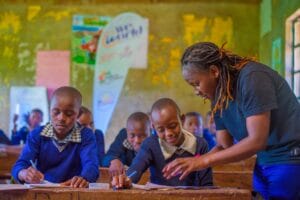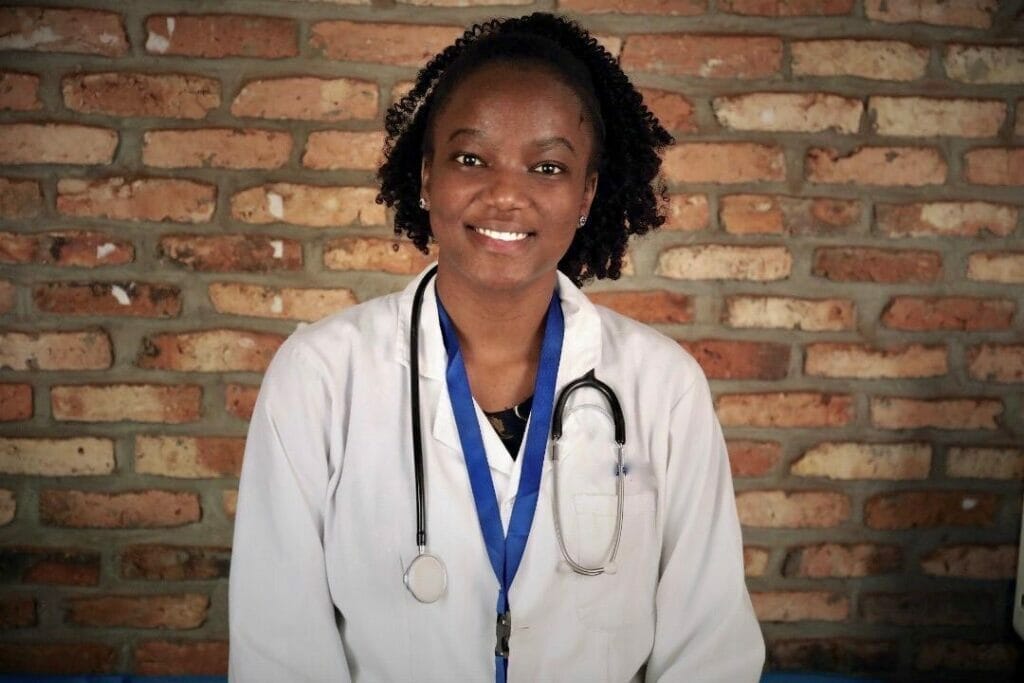
"We must continue to work to eliminate the stigma and spread the message that there is life after the diagnosis of HIV." With these words, Dr. Happy Pauliane, head of the health centre in Burundi’s Musasa refugee camp, tells us about the work in refugee camps in te country where, along with her and with the support of local partners and refugee community leaders, we work to provide medical care to people, including those with HIV/AIDS.
We have been working in Burundi since 1984, with projects focussing on water, nutrition, socio-economic development and health. In 2017, we started a programme to strengthen health services in five refugee camps for people from the Democratic Republic of Congo, providing health care to more than 17,000 people, some of whom are living with HIV/AIDS.
To mark World AIDS Day, we wanted to shed light on a complex issue that still carries stigma and prejudice, by interviewing Happy Pauliane Mwete, who is also WeWorld's manager for the Muyinga and Ngozi areas. We asked her to tell us a bit more on how patients with HIV/AIDS as well as the surroinding communities live.
This is what she told us:

"In the past, within the refugee camps, there have been several cases of discrimination and many refugees demanded that people with AIDS live in isolation and take a back seat in the communities. I happened to see a parent forbidding their child from playing with another child, whose parent was a patient with HIV. One day, the two children evaded parental supervision and spent time together. The family went to the health centre alarme, and asked us to test the child to make sure he was not sick.
It is in these cases that we take time to intervene with appropriate training. The refugees have participated in numerous awareness-raising sessions, where they have learnt about infection, prevention methods, available treatments. Through the testimonies of other people, they also learned about what it is like to live with the disease.
Today, with the passage of time and thanks to regular awareness-raising campaigns, we record fewer cases of discrimination in the camps; many refugees have increased their knowledge of HIV/AIDS and, thanks to the field work of all partners, people with HIV have been integrated into different professional and cultural activities, improving their inclusion and reducing stigmatisation.
The community today is generally caring and supportive.
However, patients themselves sometimes struggle to accept the disease because of fear of stigma. They sometimes refuse medical treatment at the health centre and prefer to be treated in clinics outside the camps.
The health centres in the camps are functioning and have the necessary medical equipment for screening, treatment and prevention. We also perform HIV viral load testing. Within the health centres, all medical care is provided according to the recommendations and protocol of the Ministry of Health.
We must continue to work to eliminate the stigma and spread the message that there is life after the HIV diagnosis".


